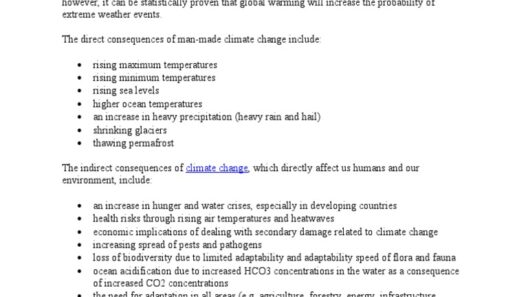Global warming, an existential threat, is precipitated by the cumulative effects of greenhouse gas emissions. The consequences of unchecked temperature rise are staggering, encompassing ecological degradation and human suffering. As stewards of this planet, we bear a resounding responsibility to curtail these emissions. This article elucidates effective strategies to mitigate global warming through an array of comprehensive approaches.
Understanding our impact on the planet is the first step toward meaningful change. The imperative to reduce carbon footprints underscores our dependency on fossil fuels and carbon-intensive lifestyles. By adopting innovative practices and technologies, we can reshape our trajectories and foster a sustainable future.
More than a collection of tips, the challenges we face call for a shift in paradigm. We must embrace a multi-faceted strategy encompassing individual, communal, and systemic actions.
Driving Change at the Individual Level
Individual action may seem like a drop in the bucket, but collective efforts can induce a tidal wave of change. Every small alteration in behavior carries significant potential for reducing carbon emissions. Here are some pivotal ways to effect change.
Embrace Renewable Energy Solutions
Transitioning to renewable energy sources—such as solar, wind, and hydroelectric power—offers a viable pathway to minimize dependence on fossil fuels. Installing solar panels or participating in community renewable energy programs can dramatically lower carbon emissions. This not only empowers households but also signals demand, encouraging further investment in clean energy infrastructures.
Champion Sustainable Transportation
The transportation sector is a major contributor to greenhouse gas emissions. By opting for public transit, carpooling, biking, or walking, individuals can significantly reduce their carbon footprints. Moreover, the transition to electric vehicles (EVs) is an opportunity to embrace innovation. Investing in EV technology not only diminishes reliance on gasoline but also aligns with a burgeoning market centered around sustainability.
Additionally, rethinking air travel can yield substantial benefits. Limiting flights, choosing direct routes, or utilizing alternatives such as rail travel can curtail the aviation industry’s carbon legacy.
A Collective Approach to Carbon Neutrality
Beyond individual endeavors, community engagement plays a crucial role in combating global warming. Local initiatives can amplify impact through collaboration and shared goals.
Promote Urban Green Spaces
Urban areas contribute significantly to greenhouse gas emissions; however, they also present opportunities for green development. Establishing urban forests, community gardens, and green roofs not only sequesters carbon but enhances biodiversity and improves air quality. Creatively integrating these green spaces into city planning can yield ecological and psychological benefits for residents.
Encourage Sustainable Practices in Local Business
Empowering local businesses to adopt eco-friendly practices creates a ripple effect. Promote and support enterprises that invest in sustainable materials and ethical sourcing. Advocacy for eco-labeling can also guide consumers toward greener choices, fostering an environment where sustainability is rewarded.
Communities can initiate local investment in carbon offset projects, collaborating with businesses to offset emissions through reforestation, soil preservation, and regenerative agriculture.
Advancing Policy Changes for Structural Impact
Systemic change is paramount to addressing the root causes of climate change. Advocacy for robust policy frameworks serves as an impetus for large-scale transformation.
Support Carbon Pricing Mechanisms
Implementing carbon pricing mechanisms, such as carbon taxes or cap-and-trade systems, can create a market incentive to reduce emissions. By assigning a dollar value to carbon, businesses are motivated to innovate and adopt practices that lower their environmental impact.
Such policies align economic incentives with environmental stewardship, leading to job creation in green industries while setting benchmarks for emission reductions.
Champion International Cooperation
The fight against global warming transcends national borders. International cooperation is essential in addressing climate change comprehensively. Support for global treaties, such as the Paris Agreement, encourages countries to take decisive action toward carbon neutrality and reinforces the commitment to preserving our biosphere.
Encouraging technology transfer and financial assistance to developing nations can level the playing field, enabling equitable progress towards sustainability. Global initiatives promote not just responsibility but also shared prosperity.
Concluding Thoughts: The Power of Action
The narratives surrounding global warming often revolve around despair and helplessness; however, a tapestry of solutions exists that empowers individuals, communities, and nations alike. Engaging in proactive measures—from embracing renewable energy and sustainable transportation to advocating for systemic policy changes—shapes a future where humans and nature coexist harmoniously.
Ultimately, the trajectory of our planet hinges on the decisions we make today. Collective action, driven by conviction and commitment to the cause, may yet usher in an era defined by resilience rather than vulnerability. As guardians of the Earth, it is our obligation to transform awareness into action and forge a sustainable legacy for generations to come.








